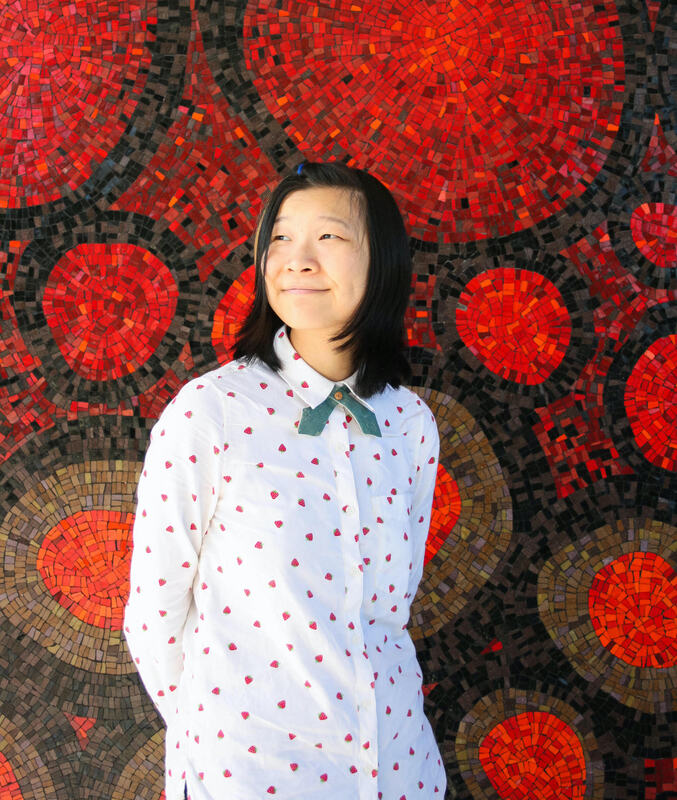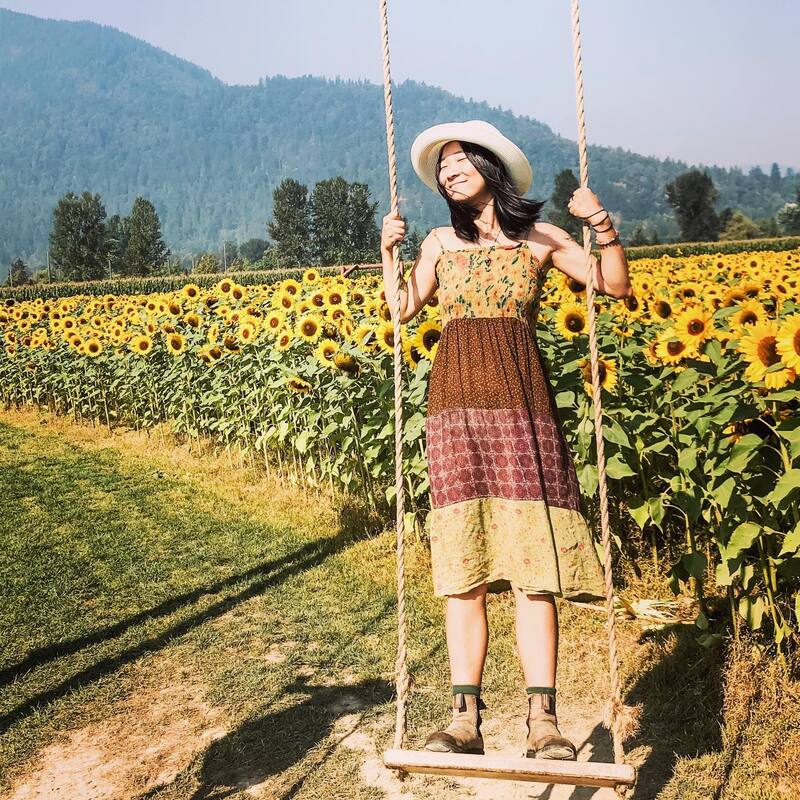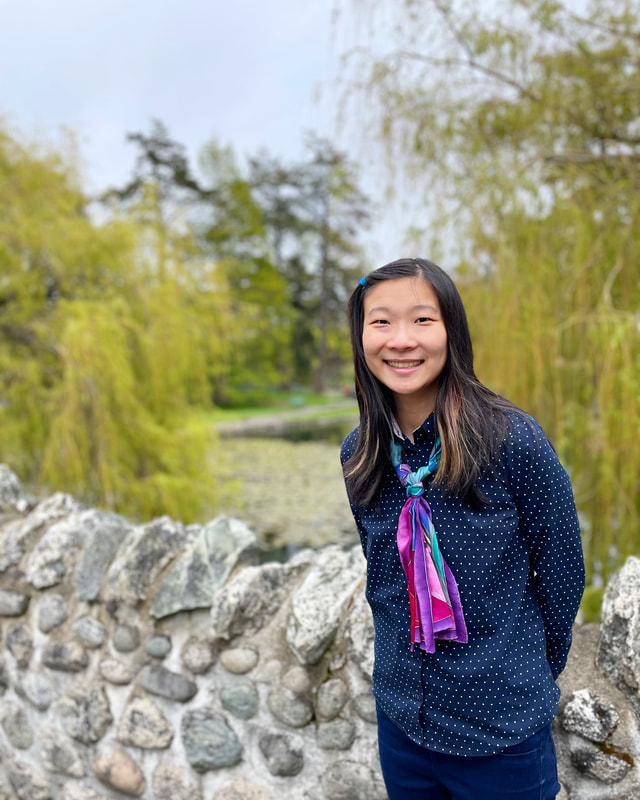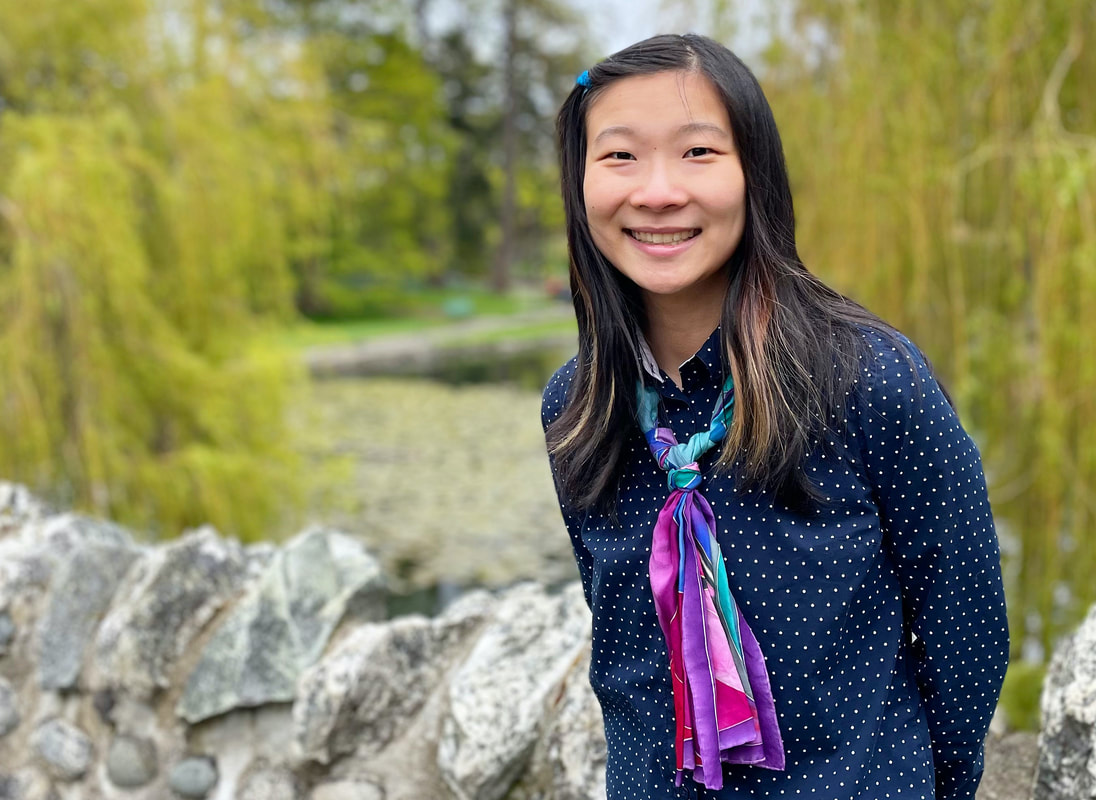Isabella wang
 Useable Author Photo.
Photo Credits: Gudrun Wai-Gunnarsson
Useable Author Photo.
Photo Credits: Gudrun Wai-Gunnarsson
I often think of people as trees. Those we meet, and those surrounding us, each have a different story to tell. Each tree starts off as a sapling, thin and weak, and will almost certainly not survive the harsh world around it without nurturing.
As the saplings grow, however, the effects that they leave over a series of life cycles, will start to resonate. Some bring beauty to the world, like the cherry, whose blossoms alone are enough to get the trees through their entire life span. Others are not so beautiful, but they produce delicious fruits that bring smiles to those who bite into them. With every storm, the saplings grow stronger, more resilient, and become adept at fending for themselves. From the time their roots first meet soil, to the time the saplings mature, they run the constant risk of being chopped down and cut off from fulfilling their potential. Many of them are hidden in dense, forest canopies. People may not know that the trees are there, but the sweet oxygen they produce will circle endlessly around the equator with La Niña and El Niño.
I was born in 2000, raised in Jining, Shandong. I lived in Beijing, China for a year before immigrating to Canada at the age of seven. I now recede on the unceded, unsurrendered ancestral territories of the səl̓ilw̓ətaʔɬ (Tsleil-Waututh) peoples, or Port Moody, as an uninvited guest. As well, I acknowledge the traditional, Coast Salish territories of the xʷməθkʷəy̓əm (Musqueam), səl̓ilw̓ətaʔɬ (Tsleil-Waututh), and Sḵwx̱wú7mesh Úxwumixw Squamish peoples, where I grew up in Vancouver for nine years as an immigrant settler, and it is a place that I am still very much getting to know now. And lastly, I am indebted to the territories of the səl̓ilw̓ətaʔɬ (Tsleil-Waututh), kʷikʷəƛ̓əm (Kwikwetlem), Sḵwx̱wú7mesh Úxwumixw (Squamish), and xʷməθkʷəy̓əm (Musqueam) peoples where I have the privilege of attending Simon Fraser University and attaining a post-secondary education. It is in all of these places that I fell in love with poetry and writing; found many of my loved ones, friends, mentors, and communities. I am grateful for the opportunity to write, learn, and grow, and for the connections I've made on these lands. However, I also recognize that I am present because of the historical and ongoing injustices, as well as the legacy colonial violence which remains a lived reality for Indigenous peoples.
This is my pledge to work, and aim to be of better support to Indigenous communities and my friends, always.
In the literary community, I am now engaged in as a writer, editor, events organizer, mentor, and workshop coordinator. I am the author of two poetry collections, a chapbook, On Forgetting a Language (Baseline Press 2019), and the full-length, Pebble Swing (Nightwood Editions 2021), shortlisted for the Dorothy Livesay Poetry Prize. Between 2017 to 2023, I was an editor, as well as the web content and submissions coordinator for Room magazine. From Fall 2018-Summer 2023, I will be pursuing my bachelor's degree—a double major in English and World Literature at Simon Fraser University.
Some of my current creative projects in-progress include goes as follows:
Subscript: Annotating Long Illness
November, November -- a long lyric of grief paying tribute in part to Phyllis Webb, and investigating the nuanced and unspeakable moments following my cancer diagnosis.
Choreography of Forgetting -- an experimental poetry manuscript that explores the ‘forgotten’ in Chinese social discourses when China, during the Great Leap Forward, made its full transition from traditional to simplified characters. Inspired by Paul Connerton’s “Seven Types of Forgetting,” — this project began with a poem where I teased out the stories contained in the Chinese word, 忘 or ‘forgetting’. This is conducted alongside my academic research, wherein I hope to examine the relationship between the loss of the narrative richness of traditional characters and the speed of China’s modernization, and how the result left a gap between the older and younger generations who can no longer read and access writing—particularly by women--in the traditional script. For generations of writers and students after me, I want to offer that you don’t have to be a member of a diasporic Chinese community to forget, but that breaking out of the cycle of forgetting is also possible.
My mentors were generous and caring as they guided me over time, introduced me to the world of editing and publishing, and helped me develop as a writer. I hope to carry forth their passion, insight, and dedication with my own literary endeavours, engage and open up the literary scene to other aspiring, young writers, the way many people have done for me.
Bio:
Isabella Wang is the author of the chapbook, On Forgetting a Language, and her full-length debut, Pebble Swing, shortlisted for the Dorothy Livesay Poetry Prize. Among other recognitions, she has been shortlisted for Arc’s Poem of the Year Contest, The Malahat Review’s Far Horizons Contest and Long Poem Contest, and was the youngest writer to be shortlisted twice for The New Quarterly’s Edna Staebler Essay Contest. She is in her Masters of Sociology at SFU. An editor on the Room collective, she is also a youth mentor with Vancouver Poetry House, poetry mentor with the UBC Learning Exchange, web coordinator with poetry in canada, and directs her own non-profit editing and mentorship program, 4827 Revise Revision St.
Useable Author Photos with Credits:
Isabella Wang is the author of the chapbook, On Forgetting a Language, and her full-length debut, Pebble Swing, shortlisted for the Dorothy Livesay Poetry Prize. Among other recognitions, she has been shortlisted for Arc’s Poem of the Year Contest, The Malahat Review’s Far Horizons Contest and Long Poem Contest, and was the youngest writer to be shortlisted twice for The New Quarterly’s Edna Staebler Essay Contest. She is in her Masters of Sociology at SFU. An editor on the Room collective, she is also a youth mentor with Vancouver Poetry House, poetry mentor with the UBC Learning Exchange, web coordinator with poetry in canada, and directs her own non-profit editing and mentorship program, 4827 Revise Revision St.
Useable Author Photos with Credits:



